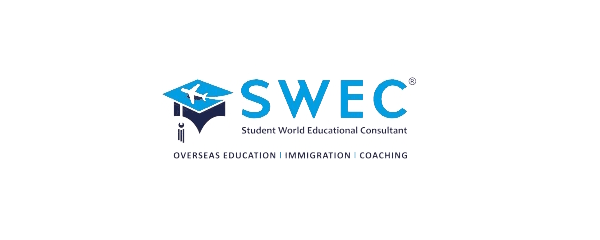Canada is one of the most sought-after destinations for immigrants, offering excellent living standards, quality education, and strong job prospects. Many people move to Canada for better opportunities and later want to bring their family members to live with them. The Canada Dependent Visa allows eligible family members, including spouses, common-law/conjugal partners, and dependent children, to join their loved ones in Canada.
Bringing family members to Canada requires careful documentation and adherence to Immigration, Refugees, and Citizenship Canada (IRCC) guidelines. The right documents are crucial for a successful visa application, as any errors or missing paperwork can lead to delays or rejection. This comprehensive checklist ensures you gather all necessary documents for a smooth and hassle-free dependent visa process.
Understanding the Canada Dependent Visa Document Requirements
The document requirements for a Canada Dependent Visa vary based on the type of dependent you are sponsoring. Whether it’s a spouse, common-law/conjugal partner, or child, specific documents must be provided to establish eligibility, financial stability, and relationship authenticity.
Key Points to Consider:
✔ Different requirements for different dependents – Spouses, children, and common-law partners require distinct proof of relationship and financial stability.
✔ Missing or incorrect documents can cause delays or rejection – Incomplete applications are one of the most common reasons for visa denials.
✔ Certified translations for non-English/French documents – Any document that is not in English or French must be translated by a certified translator.
✔ Proper document organization is crucial – Submitting properly arranged and clearly labelled documents can help avoid confusion and delays.
Ensuring all documents are accurate, up-to-date, and meet IRCC requirements significantly increases the chances of a successful dependent visa approval.
Essential Documents for All Canada Dependent Visa Applications
Regardless of the type of dependent you are sponsoring, certain mandatory documents must be included in the visa application. These documents serve as the foundation of your application and prove your identity, eligibility, and sponsorship capacity.
1. Valid Passport
✔ Both the sponsor (Canadian PR or citizen) and the dependent (spouse/child) must have a valid passport.
✔ The passport should be valid for at least six months beyond the intended date of travel.
✔ If the passport is nearing expiration, it is advisable to renew it before applying for the visa.
2. Passport-Size Photographs
✔ Recent passport-size photos of both the sponsor and the dependent as per IRCC specifications.
✔ The photos must meet the size, background, and quality guidelines specified by the Canadian government.
✔ Submitting photos that do not meet the required specifications can result in application delays.
3. Biometrics Receipt (If Applicable)
✔ Most dependent visa applicants must submit biometrics (fingerprints and photographs). ✔ After biometrics are completed at a designated Visa Application Centre (VAC), applicants receive a biometrics receipt.
✔ This receipt is crucial and must be included in the visa application.
4. Completed Visa Application Forms
✔ The correct visa application form must be filled out, depending on the relationship with the sponsor.
✔ Common forms include:
- IMM 1344 – Sponsorship Agreement and Undertaking (for spouses/partners).
- IMM 5289 – Application to Sponsor a Dependent Child. ✔ Ensure that all information is accurate, as even minor errors can lead to application delays. ✔ Double-check details such as names, birth dates, and addresses to avoid discrepancies.
5. Visa Fee Payment Receipt
✔ All applicants must pay the required visa application fees before submission.
✔ Payment can be made online, and the payment receipt must be attached to the application.
✔ Common visa fees include:
- Sponsorship Fee – $75 CAD.
- Principal Applicant Fee – $475 CAD.
- Right of Permanent Residence Fee (RPRF) – $515 CAD.
- Biometrics Fee – $85 CAD per person. ✔ Fees may vary based on the number of dependents and visa category.
Documents Required for Spousal and Partner Sponsorship
1. Proof of Relationship
To prove a genuine relationship, applicants must provide multiple supporting documents:
✔ Marriage Certificate – Official legal proof of marriage for legally married couples.
✔ Wedding Photos & Invitations – Photos of wedding ceremonies, invitation cards, and social media announcements confirming the marriage.
✔ Joint Financial Proof – Bank account statements, rental agreements, insurance policies, or property documents showing shared financial responsibility.
✔ Communication Proof – Chat logs, emails, call history, and travel history showing an ongoing relationship.
✔ Affidavits from Family & Friends – Letters from family members or friends confirming the authenticity of the relationship.
2. Financial Proof of Sponsor
A sponsor must prove they have sufficient financial resources to support their dependent spouse or partner:
✔ Income Tax Returns (ITRs) – Latest ITR filings to prove financial stability.
✔ Pay Stubs & Employer Letter – Recent salary slips and an employment letter confirming position, income, and job stability.
✔ Bank Statements – Recent statements reflecting savings and financial security.
✔ LICO (Low-Income Cut-Off) Proof – If applicable, proof that the sponsor meets the minimum income requirement.
3. Medical and Security Clearance
All applicants must meet medical and security requirements before visa approval:
✔ Medical Examination Report – Conducted by an IRCC-approved panel physician to assess health conditions.
✔ Police Clearance Certificate – From every country where the applicant has lived for six months or more in the past 10 years.
4. Additional Documents for Common-Law and Conjugal Partners
For those applying as common-law or conjugal partners, additional proof is required:
✔ Proof of Cohabitation – Lease agreements, shared utility bills, or property documents confirming at least 12 months of cohabitation.
✔ Reason for Not Living Together (If Applicable) – Explanation letter detailing legal, cultural, or immigration barriers preventing cohabitation.
Documents Required for Dependent Children Sponsorship
1. Eligibility Proof
Sponsors must provide documents proving their dependent child’s eligibility:
✔ Birth Certificate – Establishing the parent-child relationship.
✔ Proof of Age – Documentation proving the child is under 22 years old and unmarried.
✔ Medical Proof of Financial Dependency (If Over 22) – If the child is over 22, medical records proving dependency due to a disability.
2. Legal and Consent Documents
Legal documentation is crucial to avoid complications:
✔ Adoption Certificate – If the child is adopted.
✔ Parental Consent Letter – If the child’s parents are separated, a consent letter from the non-accompanying parent is needed.
✔ Court Documents for Sole Custody – If one parent has full custody, legal custody documents must be provided.
3. Medical and Security Documents
Similar to adult applicants, children may need to undergo medical and security screenings:
✔ Medical Examination – Required for children above 18 years old.
✔ Police Clearance Certificate – This may be needed for children above 18 (depending on the visa officer’s request).
Additional Supporting Documents to Strengthen Your Application
✔ Sponsor’s Proof of PR or Citizenship – PR card, citizenship certificate, or work permit of the sponsor.
✔ Proof of Past Travels Together – Visa stamps, boarding passes, and hotel bookings demonstrating travel history as a family.
✔ Reference Letters from Friends & Family – Statements confirming the authenticity of the relationship.
✔ Financial Support Proof – Regular bank transfers, money remittances, or financial aid sent to the dependent.
How to Submit Your Documents Correctly?
Proper submission of documents is essential for a successful Canada Dependent Visa application. Below are the key aspects to consider when submitting your paperwork.
Online vs. Paper Submission – Which One is Better?
The online submission method is faster and more efficient, allowing for real-time updates and quicker processing. The paper-based application, while still valid, is slower and requires mailing physical documents to the IRCC office.
Recommended:
✔ Choose online submission whenever possible for faster processing.
✔ Opt for paper submission only if online submission is not available for your category.
Scanning and Uploading Documents in the Correct Format
When submitting online, ensure that:
✔ Documents are scanned in high resolution for clarity.
✔ Files are in PDF, JPEG, or PNG format (As per IRCC guidelines).
✔ Each file is within the allowed size limit (Check IRCC requirements).
✔ All documents are properly named to avoid confusion.
Ensuring All Documents Are Up-to-Date and Legible
✔ Double-check expiration dates for passports, police clearance, and financial statements.
✔ Ensure scanned copies are clear and readable to prevent rejection.
✔ If a document needs renewal, apply for it well in advance.
Tips to Avoid Missing Important Documents
✔ Use a document checklist (like this one) to cross-check all required paperwork.
✔ Arrange your documents in the correct order before submission.
✔ Have multiple copies of critical documents in case of loss or request for resubmission.
Common Mistakes to Avoid When Preparing Documents
Many applicants face delays or rejections due to common mistakes. Avoid these errors to ensure a smooth visa process:
1. Submitting Incomplete or Expired Documents
✔ Ensure all required documents are included in your application.
✔ Double-check expiry dates for passports, police clearance, and financial records.
2. Weak Proof of Relationship
✔ Provide strong supporting evidence (joint accounts, lease agreements, communication history).
✔ Lack of photos or missing wedding records can lead to suspicion about the relationship’s authenticity.
3. Errors in Visa Application Forms
✔ Double-check names, dates, and personal details before submission.
✔ Ensure you are using the correct visa application form based on your case.
4. Not Meeting Financial Eligibility
✔ Check Low-Income Cut-Off (LICO) requirements and provide adequate proof.
✔ If financials are weak, include additional supporting documents like savings or investments.
5. Ignoring Translation Requirements
✔ Non-English/French documents must be translated by a certified translator.
✔ Submit both the original document and the certified translation.
How SWEC Visa Can Help You with Your Dependent Visa Application?
Applying for a Canada Dependent Visa can be complex, and even small errors can lead to rejection. SWEC Visa provides expert guidance to ensure your visa application is complete and optimized for approval.
✔ Expert Consultation – We verify all your documents for accuracy before submission.
✔ Strong Proof of Relationship Preparation – We help you gather the right evidence to prove your relationship.
✔ Financial Guidance – Our experts ensure you meet the necessary financial eligibility criteria.
✔ Error-Free Visa Application – We review and correct any mistakes before final submission.
✔ Reapplication Support – If your application is rejected, we assist in filing an appeal or reapplying with a stronger case.
? Need help with your Canada Dependent Visa documents? Contact SWEC Visa today for expert guidance!
Conclusion
✔ A complete and well-organized document checklist significantly increases your visa approval chances.
✔ Understanding which documents apply to your dependent type is crucial.
✔ Avoiding common mistakes ensures a smooth and hassle-free process.
✔ SWEC Visa offers expert guidance to make your application stress-free and successful.
? Want to reunite with your family in Canada? Let SWEC Visa handle your dependent visa process with expertise and precision!






